History and Seerah
Seerah Series | Part 3: Why Study Seerah, and the Pre-Islamic Arabia | Dr. Yasir Qadhi
Published
Pre-Islamic Arabia
Now we begin talking about Pre-Islamic Arabia. And we begin by mentioning who the Arabs were. This is now a topic of genealogy and ethnicity. Who are these Arabs that the Prophet  appeared amongst? This is the topic Ibn Isḥāq himself begins with.
appeared amongst? This is the topic Ibn Isḥāq himself begins with.
Most of the Arabs today might not trace their roots back to the classical Arabs. For example, when Arabs conquered Egypt, the Egyptians of that time were not the descendants of these classical Arabs. When the Arabs conquered Sham and Syria, they were Romans. But eventually the descendants of these Romans became Muslims and they started speaking Arabic, and now the Arab ethnicity is not what it used to be. So, the Arabs of our time are not the Arabs we’re talking about. The Arabs we’re talking about trace their ancestry to specific people. Most Arabs today are not descendants of those people. They have become Arab through culture, assimilation, or language. Yes some of them can trace back their lineage to the classical times, and those are the Arabs we are talking about.
Keep supporting MuslimMatters for the sake of Allah
Alhamdulillah, we're at over 850 supporters. Help us get to 900 supporters this month. All it takes is a small gift from a reader like you to keep us going, for just $2 / month.
The Prophet (SAW) has taught us the best of deeds are those that done consistently, even if they are small. Click here to support MuslimMatters with a monthly donation of $2 per month. Set it and collect blessings from Allah (swt) for the khayr you're supporting without thinking about it.
Al Arabal Baa’ida – The scholars have divided the Arabs into 2 broad categories. The first category are the extinct Arabs, Al Arabal Baa’ida. These are the earliest civilizations of humanity that lived in the Arabian peninsula, pre-Islam by thousands of years. The Qurʾān mentions some of their stories.
The A’d and the Thamud are the earliest civilizations. They have nothing to do with the later Arabs. They’re simply called Arabs because they lived in the land that was later called Arabia. It wasn’t called Arabia when they lived there. As far as we know, Thamud are the earliest people that lived there. We don’t find any humanity before Thamud. Modern archeological evidence claims that the Thamud flourished around 3000 BCE. In other words 5000 years ago. Maybe they existed since a 1000 years before that. We have documented evidence of the Thamud flourishing 5000 years ago.
And we have the Mada’in Saleh – The civilization of the Nation of Saleh. This was after Thamud. We still have their houses and palaces and we can see them, their houses and palaces. Ibn Khaldoon mentions that these people fled from the ancient city of Babil – which was the mother of all cities when there was civil war and strife. The Bible tells us so. And they made their way to Arabia.
As far as we know, this is the earliest civilization we have discovered in the Arabian Peninsula – these are stories of Thamud and A’d and others, each one with their own story of what happened to them. Some Allāh  destroyed, some migrated, and some had floods. All of these Arabs are extinct and are called the extinct Arabs, Al Arab Al Baa’ida. That’s just the remnants of history.
destroyed, some migrated, and some had floods. All of these Arabs are extinct and are called the extinct Arabs, Al Arab Al Baa’ida. That’s just the remnants of history.
Al Arab Al Baqiya – The second group of Arabs that we’re interested in are called Al Arab Al Baqiya. They’re still remaining. Baqiya is opposite of Baa’ida.
Arab Al Baaqiya are composed of two tribes – Qahtan and Adnan. These are the Arabs. Who is Qahtan and who is Adnan?
Qahtan – Qahtan is considered to be the father of the Arabs. His son was named Ya’arib or Ya’arab. He is literally the father. The word Arab comes from the son’s name – Ya’arab. The Arabs later try to say it came from a verb A-ra ba and Ya rib u, Allāh  knows best. But the name Ya’arab became the basis for the word Arab. It is said that Ya’arab was the first to speak Arabic, this is what is said in the books but common sense tells us languages don’t just come from one person. Languages evolve. So perhaps Ya’arab was the one to whom the Arabic language was traced. They trace the Arabs to him. Since Ya’arab was the son of Qahtan, these are Qahtani Arabs.
knows best. But the name Ya’arab became the basis for the word Arab. It is said that Ya’arab was the first to speak Arabic, this is what is said in the books but common sense tells us languages don’t just come from one person. Languages evolve. So perhaps Ya’arab was the one to whom the Arabic language was traced. They trace the Arabs to him. Since Ya’arab was the son of Qahtan, these are Qahtani Arabs.
Who is Ya’arab and who is Qahtan? Amazingly we don’t know. There’s two or three opinions about where he descended from. We all know he descended from Ādam, but which branch of Ādam? Where did he go back to? The majority opinion says that Qahtan was one of the descendants of the son of Nūḥ  called Saam. It was agreed upon that he was one of the children of Saam. Who is Saam?
called Saam. It was agreed upon that he was one of the children of Saam. Who is Saam?
Saam is the father of the Semites. Semites are descendants of Saam. Who are Semites? Semites are a group of people who speak similar language like Hebrew, the Aramaic of the old, the Arabs, the Nebateans (Nebatiyoon) – these are all Semites.
There is a slightly weak ḥadīth, also found in the Old Testament that legend has it that Nūḥ  had three sons. We’re interested in Saam, who is the father of the Hebrew race, the Aramaic-speaking people. Ibrāhīm
had three sons. We’re interested in Saam, who is the father of the Hebrew race, the Aramaic-speaking people. Ibrāhīm  is a descendant of Saam. His brother Yaafith, it is said, is the father of the Roman race, the Caucasians, the white people. His brother Haam, is the father of the Africans. This is a legend that the Bible states. Our tradition says it is a ḥadīth by Tirmidhee. Allāh knows best. And there is nothing to contradict it. So, we might as well note it. So Saam is one of the children of Nūḥ
is a descendant of Saam. His brother Yaafith, it is said, is the father of the Roman race, the Caucasians, the white people. His brother Haam, is the father of the Africans. This is a legend that the Bible states. Our tradition says it is a ḥadīth by Tirmidhee. Allāh knows best. And there is nothing to contradict it. So, we might as well note it. So Saam is one of the children of Nūḥ  .
.
That brings us to conclude that Qahtan is not the direct descendant but maybe the tenth or fifteenth or many generations later, we don’t know. This simply means that Qahtan and Ibrāhīm  come from Saam, but there is no direct connection. They may be ten generations apart. Another opinion is that Qahtan is a descendant of Ibrāhīm
come from Saam, but there is no direct connection. They may be ten generations apart. Another opinion is that Qahtan is a descendant of Ibrāhīm  . A third opinion is that Qahtan is a descendant of Hūd
. A third opinion is that Qahtan is a descendant of Hūd  That’s a weak opinion, and Allāh
That’s a weak opinion, and Allāh  knows best. The majority position seems to be that Qahtan is not linked to Ibrāhīm
knows best. The majority position seems to be that Qahtan is not linked to Ibrāhīm  . But both are descendants of Saam, with 10 generation cousinary between them. When did Qhatan live? We don’t know. But he was way before Adnan. They were not at the same time. Where did Qahtanis live? They lived in the southern portion of Arabia. They had a number of dynasties, kingdoms and ethnicities.
. But both are descendants of Saam, with 10 generation cousinary between them. When did Qhatan live? We don’t know. But he was way before Adnan. They were not at the same time. Where did Qahtanis live? They lived in the southern portion of Arabia. They had a number of dynasties, kingdoms and ethnicities.
Laqad kaana lakum fi Sab’ai … Sab’a, – the kingdom of Sab’a is mentioned here. Allāh mentions they were Qahtanis, the Hemeorites were Qahtanis. Ghassanids were Qahtanis. These were all descendants of Qahtan. The Owz and the Khazraj in Madīnah were Qahtani. These were the original Arabs, Al Arab Al Aariba. Why are they called original Arabs? Because they invented Arabic, and spoke Arabic – Al Arab Al Aariba. This is Qahtan.
Adnan – We know much more about Adnan. He is well known. Why? Because he is the ancestor of our Prophet  . The Prophet
. The Prophet  is not Qahtani, he is Adnani. Who is Adnan? Adnan is one of the descendants of the Prophet Ismā‘īl
is not Qahtani, he is Adnani. Who is Adnan? Adnan is one of the descendants of the Prophet Ismā‘īl  . Ismā‘īl
. Ismā‘īl  is not a Qahtani, he is from Ibrāhīm
is not a Qahtani, he is from Ibrāhīm  . But obviously they go back to the Semite race. So, both Qahtan and Ibrāhīm are Semites. And both go back to Nūḥ
. But obviously they go back to the Semite race. So, both Qahtan and Ibrāhīm are Semites. And both go back to Nūḥ  .
.
Now Ismā‘īl  is not from Arabia. Where is he from? Where is Ibrāhīm
is not from Arabia. Where is he from? Where is Ibrāhīm  from? He is from Iraq. He is from Urr. Urr is Iraq. Iraq is the cradle of civilization. Ibrāhīm fled Iraq with his cousin Sara and made his way through Egypt. The King tried to rape Sara, Allāh
from? He is from Iraq. He is from Urr. Urr is Iraq. Iraq is the cradle of civilization. Ibrāhīm fled Iraq with his cousin Sara and made his way through Egypt. The King tried to rape Sara, Allāh  prevented that, and the King gifted him Hajar. So, Hajar is Egyptian, but lineage in Islam is through the father, with all respect to the mother. The mother is Egyptian, that is why the Prophet
prevented that, and the King gifted him Hajar. So, Hajar is Egyptian, but lineage in Islam is through the father, with all respect to the mother. The mother is Egyptian, that is why the Prophet  said to the Muslims, “You shall conquer Egypt. When you do conquer, be good to them because you have Sila with the people of the Egypt.” And that is from Hajar.
said to the Muslims, “You shall conquer Egypt. When you do conquer, be good to them because you have Sila with the people of the Egypt.” And that is from Hajar.
So, Ibrāhīm  is Iraqi, from Urr, so Ismā‘īl
is Iraqi, from Urr, so Ismā‘īl  , ethnically is not from Arabia. He is from Iraq too. Ismā‘īl
, ethnically is not from Arabia. He is from Iraq too. Ismā‘īl  is left as a baby with his mother Hajar in Makkah in an area that Qahtanis do not inhabit, they are down south. Makkah is in the middle, in the center, the Ḥijāz. It’s a barren land. And one of the tribes of Qahtan, Jurhum, passes by. And Ismā‘īl marries into the Jurhum. So, Ismā‘īl is not Qahtani, obviously. But since he married a Qahtani, he began speaking their language, Arabic, and his children are now obviously merging between Ibrāhīm’s
is left as a baby with his mother Hajar in Makkah in an area that Qahtanis do not inhabit, they are down south. Makkah is in the middle, in the center, the Ḥijāz. It’s a barren land. And one of the tribes of Qahtan, Jurhum, passes by. And Ismā‘īl marries into the Jurhum. So, Ismā‘īl is not Qahtani, obviously. But since he married a Qahtani, he began speaking their language, Arabic, and his children are now obviously merging between Ibrāhīm’s  blood and the Qahtani’s and the few generations down a luminary appears by the name of Adnan. Between Ismā‘īl and Adnan, there are seven or ten generations. So we can say around 400 to 500 years between them both. And from Adnan, the Arab tribes spring forth. Of all the Adnani tribes, the most famous of them is Quraish. And they go back to Adnan, and Adnan goes back to Ismā‘īl.
blood and the Qahtani’s and the few generations down a luminary appears by the name of Adnan. Between Ismā‘īl and Adnan, there are seven or ten generations. So we can say around 400 to 500 years between them both. And from Adnan, the Arab tribes spring forth. Of all the Adnani tribes, the most famous of them is Quraish. And they go back to Adnan, and Adnan goes back to Ismā‘īl.
Ismā‘īl  had many other children, and some of them went into civilizations that were not Arab. So there is an opinion that the Nabateans (Nabatiyoon) were in fact descendants of Ismā‘īl (not from Adnan). The Adnanis are called Al Ar’abal Musta’liba, the Arabs who learnt Arabic, who were Arabicized. Why? Because Arabic was not their language. They learnt it from Arabal Al A’riba, who spoke Arabic. Adnan was the 20th grandfather of the Prophet
had many other children, and some of them went into civilizations that were not Arab. So there is an opinion that the Nabateans (Nabatiyoon) were in fact descendants of Ismā‘īl (not from Adnan). The Adnanis are called Al Ar’abal Musta’liba, the Arabs who learnt Arabic, who were Arabicized. Why? Because Arabic was not their language. They learnt it from Arabal Al A’riba, who spoke Arabic. Adnan was the 20th grandfather of the Prophet  , unanimously agreed by all scholars. The Prophet
, unanimously agreed by all scholars. The Prophet  was born 20 generations after Adnan.
was born 20 generations after Adnan.
Al Ar’abal Musta’liba actually became better at Arabic than the Arabal A’riba. Why and how so? They settled in central Arabia. Therefore all of the tribes of Arabia would go through them and to them, and by them and because they interacted with all Arabal A’riba and because they’re central they began to take all the Arab cultures. After a while Arabal Musta’liba became more powerful, more eloquent and more prestigious than Al Ariba, and that is why Allāh  chose the Prophet
chose the Prophet  to be from the Ar’abal Musta’liba. So don’t think there’s some type of deficiency in why the Prophet
to be from the Ar’abal Musta’liba. So don’t think there’s some type of deficiency in why the Prophet  comes from Arabal Musta’liba and not A’riba.
comes from Arabal Musta’liba and not A’riba.
We went into a lot of geneology, though you may not be interested in it. We need to know something about the history of the Arabs, the various dymanics between the tribes, and tension between the tribes, in order to fully understand the sīrah. I would like to make this sīrah series more academic than others that you may have heard. The purpose is not just to narrate stories but to tell you where they came from. Are they authentic or not? It is important to know truth from falsehood, and to give you morals and wisdoms.
At every incident, we should pause and ask – what can we derive from this story? How can we benefit from this story, especially in light of modern times? And I will try to be very exhaustive. As you know, this is my 4th or 5th time teaching syrah. This is my specialty. Every time I teach, I add a little more and more, because I love the sīrah . It makes me very proud to be a Muslim. It really empowers me in my Islam. It makes me feel Allāh  has blessed us with this beautiful religion of Islam, so I love to go into details about the sīrah. It will be frustrating if you want to cover the sīrah in three weeks, you are never going to cover it in this class. In fact I have never finished the sīrah in English. Because wherever I moved, years had gone by and I never finished the sīrah. I was in Connecticut and just got through the battle of Uhud. In five years, I wasn’t able to finish it because I love going into detail.
has blessed us with this beautiful religion of Islam, so I love to go into details about the sīrah. It will be frustrating if you want to cover the sīrah in three weeks, you are never going to cover it in this class. In fact I have never finished the sīrah in English. Because wherever I moved, years had gone by and I never finished the sīrah. I was in Connecticut and just got through the battle of Uhud. In five years, I wasn’t able to finish it because I love going into detail.
This is my methodology and I’m not going to water this down. And we’re going to take our time and analyze and dissect the sīrah. InshaAllāh my goal is that the sīrah will be presented in English in a way it has not been presented before. Many of you ask me what book I based it on. I don’t base it on any modern book, but to the original books like Ibn Isḥāq and Ibn Hisham and Bayhaqi, to the original sources. The modern books are based on the classical ones. So I go directly to the sources.
Modern sīrah books recommended
If you ask me a better book for sīrah, I will say that Shaikh Safiyur Rahman Mubarakpuri has written Ar Raheeq ul Makhtoom. This book has a story. In 1979, WAMY (World Assembly of Muslim Youth) made an announcement that they will hold a worldwide competition in writing books of sīrah. Over 400 books were written in that one year, because the grand prize was I think $100,000.00, which was quite a lot of money for those times, so it was good incentive to do something good. Out of these 400 books written in multiple languages, the book that won the first prize was the book of my Shaykh – Safiyur Rahman’s Ar Raheequl Makhtoom, or The Sealed Nectar. It’s a very beautiful, simple and easy book, and it does the job of a sīrah in a very professional and academic manner. But unfortunately the English translation is just terrible. I’m sorry. The Urdu I heard is very good. The Shaykh is Indian, alḥamdulillāh. I have some bias here. He could read Urdu, so he approved it in Urdu. The Shaykh wrote it in Arabic. He’s an Indian, never stepped foot in Arabia. He wrote it in Azamgarh a small village, locking himself up in his library literally for four months, just going out to eat and to the bathroom. He wrote it in very beautiful Arabic. I was shocked that his Arabic was so strong even though he never lived in Arabia. He won the first prize. So if you read it in English, you get the facts, though the English is not so good.
My encouragement is to read Ar Raheequl Makhtoom. I also have another recommendation to read Martin Ling’s book Muhammad  . Martin Ling’s book is the most eloquent book of sīrah in English, and that’s not surprising because Martin Ling was a professor at Oxford on Shakespeare. He converted to Islam back in the ‘60s. He was a Shakespearean ‘ālim at Oxford. ‘Ālim means scholar. He lived a very quiet life. He wasn’t a very public person, an intellectual who kept to himself. He wrote a book of sīrah, the English of which cannot be compared to any other book. He is a master of English. There’s only one problem with the book – there are two or three stories in there that shouldn’t have been there. It’s not his fault, he didn’t invent these stories, but he is not a researcher, he’s not a scholar, and so he just took some stories that he didn’t really think were critical, and he put them in there. That was the problem in this book. Those stories can be used like fuel and fodder for non-Muslims to say things about our religion. He wrote it at a time when Islam was not under attack and he didn’t really think it through, and he was a Shakespearean ‘ālim not a ḥadīth ‘ālim, but I do encourage you to own the book and read it. And if you google it, you might find pdfs of the number of stories that are dangerous or incorrect with the Martin Ling’s book.
. Martin Ling’s book is the most eloquent book of sīrah in English, and that’s not surprising because Martin Ling was a professor at Oxford on Shakespeare. He converted to Islam back in the ‘60s. He was a Shakespearean ‘ālim at Oxford. ‘Ālim means scholar. He lived a very quiet life. He wasn’t a very public person, an intellectual who kept to himself. He wrote a book of sīrah, the English of which cannot be compared to any other book. He is a master of English. There’s only one problem with the book – there are two or three stories in there that shouldn’t have been there. It’s not his fault, he didn’t invent these stories, but he is not a researcher, he’s not a scholar, and so he just took some stories that he didn’t really think were critical, and he put them in there. That was the problem in this book. Those stories can be used like fuel and fodder for non-Muslims to say things about our religion. He wrote it at a time when Islam was not under attack and he didn’t really think it through, and he was a Shakespearean ‘ālim not a ḥadīth ‘ālim, but I do encourage you to own the book and read it. And if you google it, you might find pdfs of the number of stories that are dangerous or incorrect with the Martin Ling’s book.
For example, he says: the Prophet  fell in love with Zaynab. This is just not true, this is complete fabrication. I gave a talk at Yale on this issue. There was no love story, no romance going on. Unfortunately he put it in there. He thought it was for a western audience, and romance and love stories are a good story for them. But that’s not our Prophet
fell in love with Zaynab. This is just not true, this is complete fabrication. I gave a talk at Yale on this issue. There was no love story, no romance going on. Unfortunately he put it in there. He thought it was for a western audience, and romance and love stories are a good story for them. But that’s not our Prophet  , and so there are other issues of this nature. Otherwise the book is superb.
, and so there are other issues of this nature. Otherwise the book is superb.
So these two books are the ones you should purchase, own, and read. And as time goes on, we will mention other books as well InshaAllāh.
Next week we’ll begin with other stories.`
Keep supporting MuslimMatters for the sake of Allah
Alhamdulillah, we're at over 850 supporters. Help us get to 900 supporters this month. All it takes is a small gift from a reader like you to keep us going, for just $2 / month.
The Prophet (SAW) has taught us the best of deeds are those that done consistently, even if they are small. Click here to support MuslimMatters with a monthly donation of $2 per month. Set it and collect blessings from Allah (swt) for the khayr you're supporting without thinking about it.
Sh. Dr. Yasir Qadhi is someone that believes that one's life should be judged by more than just academic degrees and scholastic accomplishments. Friends and foe alike acknowledge that one of his main weaknesses is ice-cream, which he seems to enjoy with a rather sinister passion. The highlight of his day is twirling his little girl (a.k.a. "my little princess") round and round in the air and watching her squeal with joy. A few tid-bits from his mundane life: Sh. Yasir has a Bachelors in Hadith and a Masters in Theology from Islamic University of Madinah, and a PhD in Islamic Studies from Yale University. He is an instructor and Dean of Academic Affairs at AlMaghrib, and the Resident Scholar of the Memphis Islamic Center.


30 Nights with the Qur’an: A Ramadan Series for Muslim Teens

Keep Zakat Sacred: A Right Of The Poor, Not A Political Tool

Far Away [Part 9] – Crane Dances In The River

From The MuslimMatters Bookshelf: Ramadan Reads For 1447 AH

Courting The Crosswinds: The Tragedy Of Saif Al-Islam Qaddafi

[Podcast] Should Muslims Ally with Conservatives or Progressives? | Imam Dawud Walid

How to Make this Ramadan Epic | Shaykh Muhammad Alshareef

[Podcast] The Parts of Being an Imam They Don’t Warn You About | Sh Mohammad Elshinawy

[Podcast] Guardians of the Tradition: Muslim Women & Islamic Education | Anse Tamara Gray

Iron Principle Under Pressure: A Profile Of Naledi Pandor

[Podcast] Guardians of the Tradition: Muslim Women & Islamic Education | Anse Tamara Gray

How to Make this Ramadan Epic | Shaykh Muhammad Alshareef

[Dhul Hijjah Series] Calling Upon the Divine: The Art of Du’a (Part 1)

IOK Ramadan 2025: Four Steps | Sh Zaid Khan

IOK Ramadan 2025: Do Your Best | Sh Zaid Khan
Trending
-
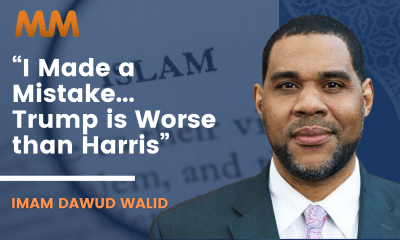
 #Current Affairs4 weeks ago
#Current Affairs4 weeks ago[Podcast] Should Muslims Ally with Conservatives or Progressives? | Imam Dawud Walid
-
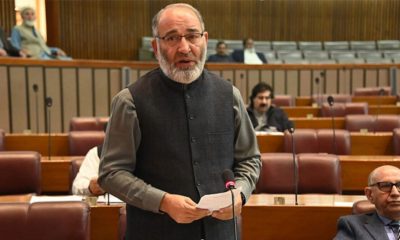
 #Current Affairs1 month ago
#Current Affairs1 month agoOp-Ed: From Pakistan To Gaza – Why Senator Mushtaq Ahmad Khan Terrifies Power And Zionism
-
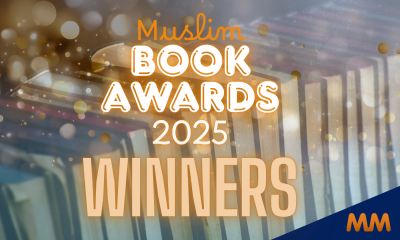
 #Culture1 month ago
#Culture1 month agoThe Muslim Book Awards 2025 Winners
-
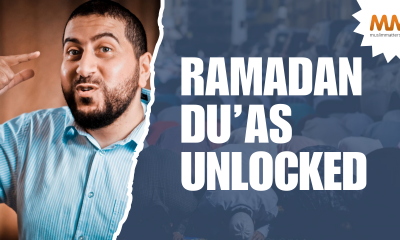
 #Islam3 weeks ago
#Islam3 weeks agoHow to Make this Ramadan Epic | Shaykh Muhammad Alshareef

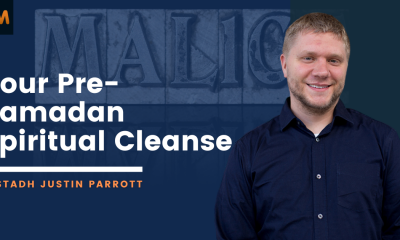





Melanie
March 21, 2014 at 12:31 PM
Jazaka Allah Kharyun, Dr. Qadhi for the reminders..i love the written transcript so much easier for me to read and review.
yellow roses
March 21, 2014 at 12:38 PM
May Allah continue to bless you and your family !!! This came at the right time for me.
Aly Balagamwala
March 22, 2014 at 10:10 AM
Dear Sister
Jazakillahu Khairin for your regular comments on our site. Please note that our Comments Policy states that you must use your name, a Kunyah or a valid blog handle if it is linked to your blog and a valid email address. This has been pointed out to you earlier in a couple of comments. Kindly help us by following the guidelines of the Comments Policy.
Best Regards
Aly
Shifaya
April 8, 2014 at 12:23 AM
JazakAllahu Khayran for the wonderful transcription. Looking forward for part 4, In Shaa Allah :)
Mohammed
April 15, 2014 at 8:24 AM
Masha Allah this is scholarly work. Keep up the good work. Jazak Allah khairan
Thasneem
April 24, 2014 at 2:09 AM
Assalamu alaikum! I have a few questions to be answered by Dr. Yasir Qadhi. I have been listening to his lectures on the Seerah of the Prophet Muhammad ( PBUH ) uploaded by MemphisIslamicCenter on YouTube and have covered upto Hudaybiyya.
1. It was told that Kunooth was recited by Prophet Muhammad ( PBUH ) only at times of calamity for the Ummah as a whole as in the massacre at well of Mauna and Al Raji and not in the Fajr prayers.
2. It was also told that the period of Iddah is one menstrual cycle and not 3 months or 4 months & 10 days as argued by some.
3. The last question is the gusl for Janabath. Is it necessary for gusl or just the ablution will clean you from the state of impurity.
There are many views regarding these. Can you please explain further the different views by renowned scholars and the Sunnah practiced by our prophet. I would like to know the view of Dr. Zakir Naik also since I follow some of his lectures and find them to have been researched.
Jazakallahu khaira!
Kari
May 20, 2014 at 8:11 PM
Assalamu Alaikum. JazakAllah Khair for the transcript! Really appreciate it..
sayyadi
June 27, 2014 at 1:13 AM
Jazakallah. An islamic historian student from Nigeria.
Gul
September 27, 2014 at 9:06 AM
السَّلاَمُ عَلَيْكُمْ وَرَحْمَةُ اللهِ وَبَرَكَاتُهُ
JazakAllah Khayran for the transcription of this series. It has been immensely helpful. I was wondering if you are going to be doing the rest of the videos of this series?
Sarah
November 2, 2014 at 3:17 PM
Please do the others! These are hugely beneficial. jazakallah khayran
Safwan
February 7, 2015 at 12:58 PM
Jazak’Allah Khair for this.
For anyone wanting more transcribed notes for the seerah lectures, please visit https://www.scribd.com/safwan9khan.
I have (as of writing) completed notes for all the lectures up to lecture 61. The remaining will be complete within the next two months inshaAllah. Please share with others if you find them beneficial.
Abdullah Sherazi
October 29, 2015 at 10:26 AM
Assalamu Alaikum Brother,
Can you send me the transcripts in my email abbudm@yahoo.com?
JazakAllah Khairan for your hard work.
Haris Khan
December 10, 2015 at 10:57 PM
I can’t download it from Scribd as it required payment for registration. Please, please I need them all. Can you email me at hariskamalkhan717@gmail.com?
abu Hamzah
March 25, 2015 at 12:32 PM
As salamu alaikum. have Zohra written more notes than 3 parts. The notes are really good mashaAllah.
Fatuma Abdi
April 18, 2015 at 10:41 AM
Assalama Aleikum.I have learnt a lot.Jazakallah kheir may Allah bless you
Ibrahim
June 11, 2015 at 5:19 AM
Assalamu alaikum..I learnt a lot from Dr. Yasir..Also looking for the transcripts of the other parts of the seerah series by Dr. Yasir.(part 4 to part 104) .. Got only the first three transcripts here..Is there any link where i can get all the transcripts regarding the seerah series??Appreciate any suggestions..Allah Hafej
Safwan
November 29, 2015 at 10:17 AM
Please see http://www.scribd.com/safwan9khan. Alhamdhulillah I have transcribed the entire seerah series. InshaAllah they will be beneficial to you. JazakAllah Khair.